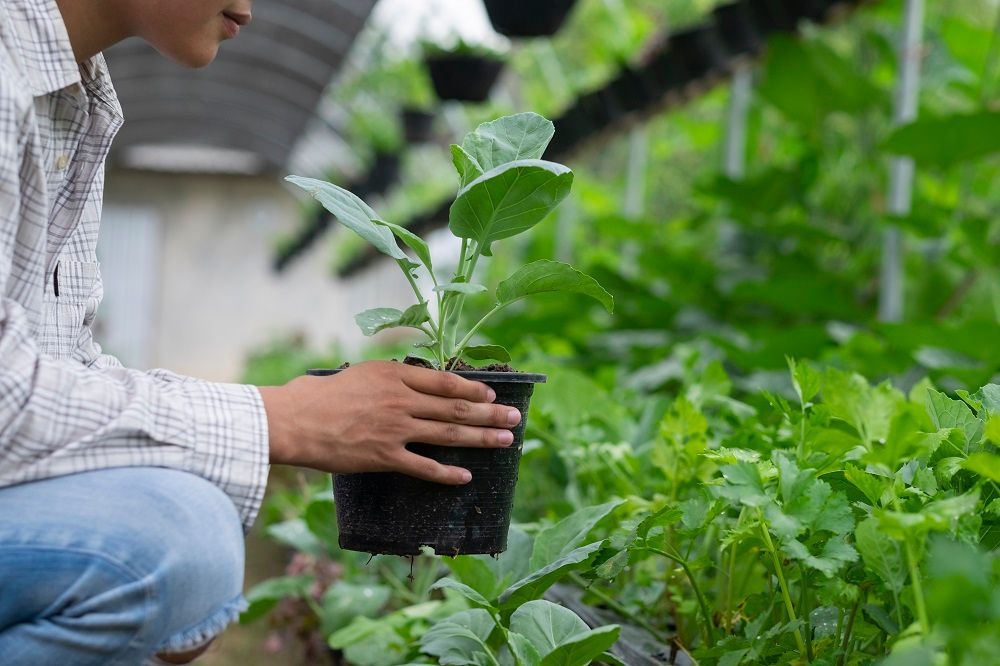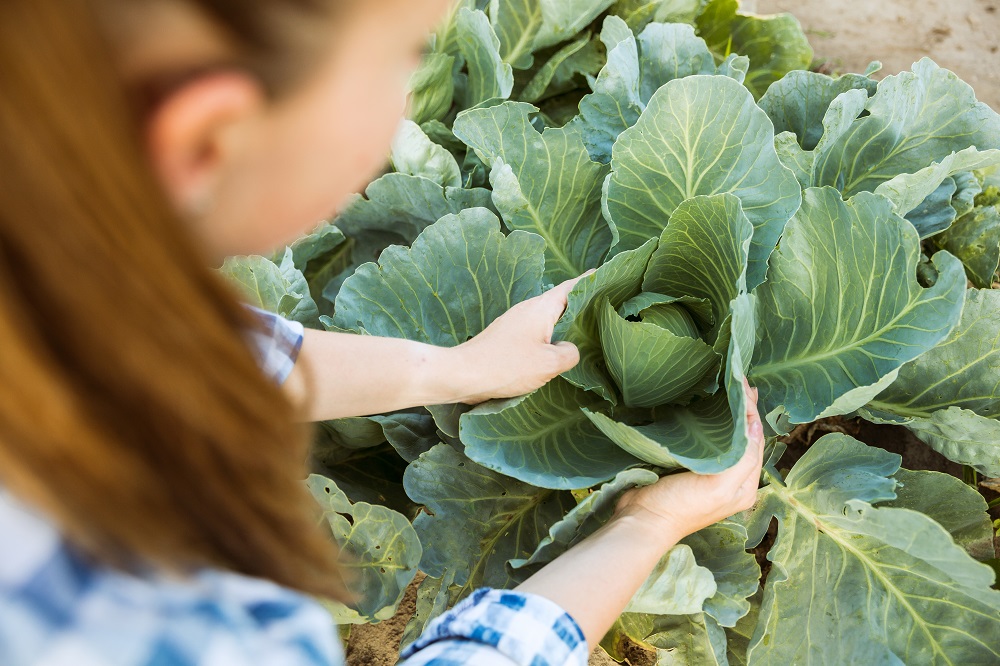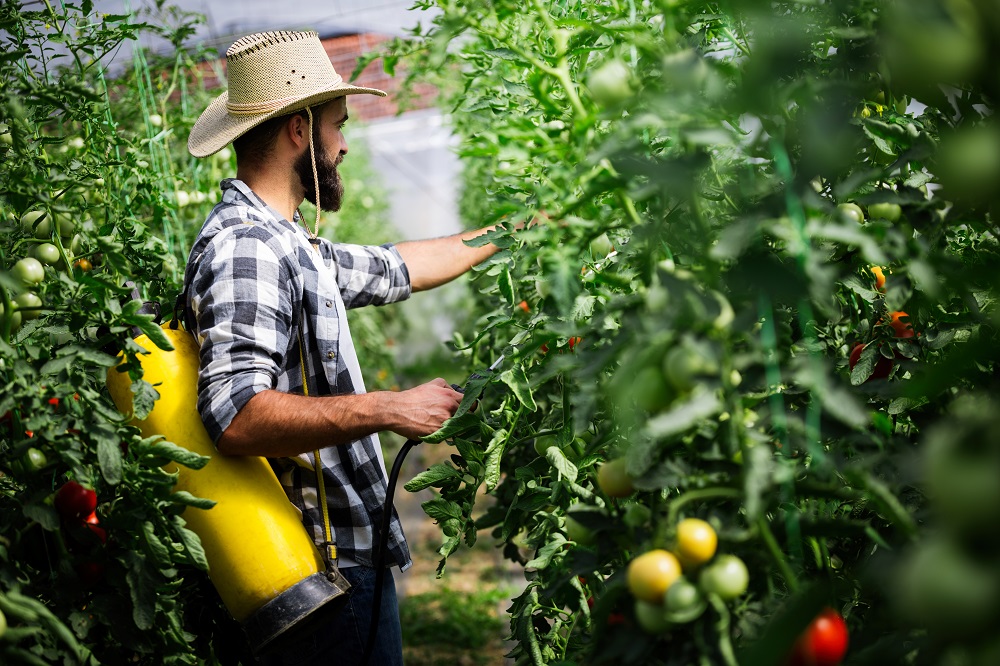Becoming a Successful Farmer at a Young Age, Why not?

become a successful young farmer
(Istimewa)Agriculture is a big part of the Indonesian legacy. For years and years, most of the Indonesian population worked as farmers or in the agriculture sector, resulting in Indonesia being titled an agrarian country. Sadly, as the years went on and urbanization expanded, the number of farmers kept declining, especially young farmers.
According to the 2019 Central Statistical Agency (BPS) census, from the recorded 33.4 million total farmers, there are only 2.7 million young farmers with the age range of 20 to 30 years old. The remaining registered farmers were over 40 years old, even 50 to 60 years old. This number is predicted to continue declining due to a rise in the digital workforce.
Young farmers are imperative for the continuation of the Indonesian agricultural legacy, not to mention the economy. According to BPS, agriculture is the second largest support sector for the Indonesian economy. As of 2021, the agricultural sector contributed 13.28 percent of the national gross domestic product (GDP).
The reason why it is easy for the younger generation to become farmers
The Ministry of Agriculture and President Joko Widodo believes that the Indonesian youth is the future of Indonesian agriculture. They believe that young people are more suited to continue the legacy of Indonesian farmers due to their creativity and familiarity with technology.

Currently, the government is focusing on raising the number of millennial farmers by applying mechanization technology to help boost production. The Minister of Agriculture believes that raising farmers’ ability to produce can help increase their income and secure their welfare, increasing the chances for the younger generation of farmers to be interested in farming.
“I hope that millennial farmers can transmit their passion for farming throughout the country. If that is done, then Indonesia will overtake Brazil and America as a country advanced in the field of agriculture. That is what we must encourage together, how millennial farmers have enthusiasm,” said Dedi Nursyamsisi, Head of the Agricultural Human Resources Extension and Development Agency (BPPSDMP) of the Ministry of Agriculture, as reported by the Ministry Website.
The success story of young farmers using technology to boost their production has been spreading all over Indonesia. For example, the success story of Anak Agung Gede Agung Wedhetama, who developed his farming process in Bali with the concept of smart farming, digitalization, and the internet of things (IoT).
Agung Wedha’s concept of smart farming includes the use of electricity to power his mechanization of water pumping, water distribution, irrigation, sprinkler systems, and other indicators. His concept successfully helped boost production, which resulted in his ability to export fresh fruits up to 10 tons per shipment, from his previous 3 tons before applying the smart farming concept.
Not only does Agung Wedha apply the advancement of technology to his production stage, but he also applies them to the post-production stage. He utilizes the benefit of digital marketing that allows him to import fruits to other countries.
“In downstream we have cooperative business units that market from retail, online, B2B to exhibitions. Since 2017, we have exported Balinese agricultural products to the Middle East, China, and Europe,” he said.
Other success stories of young farmers utilizing technology can be seen from the youth in Brawijaya University, Surabaya that managed to produce high-quality food using a drip irrigation system based on IoT. Another in Semarang sees the opportunity to supply organic high-quality food during the pandemic, resulting in an income of 300 million rupiahs.
These young farmer stories also come with the success story of their community helping one another. Agung Wedha founded the Petani Muda Keren community that helps one another from top to bottom of the farming process. While the youth in Semarang has a group of 30 young people that consist of 19 to 38-year-olds, with the name Tani Citra Muda. Their communities are not only successful in producing fruits and vegetables they also help to inspire other youth with their journey as young farmers.
Tips to become a successful young farmer
Being a farmer is surely not an easy feat. It is known that being a farmer will require physical labor, working under the sun, and agricultural knowledge. But farming can be so much more than that. Younger people, who are more tech-savvy and used to thinking outside the box, can develop more of the business side of farming. From acquiring supplies and applying new technology to packaging and advertising.

For the younger people, with their lively spirit and access to the knowledge of the world through the internet, being a farmer can be a rewarding profession in the long run. Farmers are responsible for producing food, and the demand will not stop. It could mean years and years of profits if done right. Not to mention, being a farmer means helping the continuation of the world’s food supply and helping to contribute to mitigating the threat of world hunger.
So with that, here are a few tips on becoming a successful young farmer.
- Never stop innovating. The spirit of creating and finding new ways to solve problems should always be top of mind for young farmers. Be it using technology to cut the amount of physical labor or innovative packaging, innovation can help boost production and sales.
- Expand the target market. As of now, there’s a rise in demand for fresh produce as more and more people are turning to a lifestyle of vegetarianism and distancing themself from meat products. These opened up a market for plant-based products like soybeans for tofu and tempeh as a source of protein, along with grain and nut-based dairy.
- Produce high-quality products. Following the previous point, as more and more people are consuming fruits and vegetables, the demand for them to be of high quality also increases. It means people are more attracted to locally produced and organic fruits and vegetables. Looking at these opportunities, young farmers can start to limit the use of chemical fertilizers and pesticides, instead focusing on supplying the plant with natural fertilizers like compost and fertilizer enhanced with microbes. (Safaanah)
